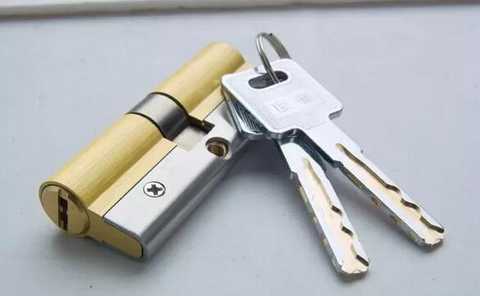What do you know about the common terms and terms of locks?
HC Security Network News First, the terminology of the quality of the lock The technical terminology of density, robustness, flexibility and durability is often referred to in the quality of the lock. It is the most important indicator for evaluating the quality of the lock. 1. Durability: Durability is a specific indicator for measuring the service life of locks and keys. He is one of the important indicators for evaluating locks. 2. Firmness: The firmness is a comprehensive indicator for measuring the tensile, compressive and torsional resistance of the riveted parts and assemblies in the lock structure and the service life of the lock and key. 3, the number of different teeth of the key: the number of different teeth of the key refers to the number of the actual opening of the key. The larger its value, the higher the density of the lock. 4. Flexibility: Flexibility is a technical indicator for determining whether a lock is easy to use. It includes the opening and closing of the lock, the insertion and removal of the key, the lock, the handle, the lock tongue and the like. 5, the density: the density refers to the safety and reliability of the lock after closing and the ability to prevent foreign matter. Each set of key locks has different number of teeth and mutual opening rate, which is an important indicator. Different types of locks also stipulate different safety devices and defense measures. 6, mutual opening: in the same type of lock, when the key is used to open the non-numbering lock, it is called mutual opening. The smaller its value, the higher the density of the lock. Second, the terminology of lock performance 1. Safety chain: When the safety chain is hung on the lock, the door is opened, and the outsider cannot enter, nor can the hand unload the safety chain and can withstand the specified impact force. 2, anti-insertion: the lock head is machined with steps to prevent the use of thin steel sheets or other foreign objects inserted into the lock and lock gap, separating the upper and lower marbles. 3, anti-extraction: in the specified time with a foreign object {relative to the key} for non-destructive trial dialing, can not open the lock. 4, anti-drilling: use the drill bit {for the double tongue lock with ¢ 6mm drill bit} drill the upper and lower marble interface, should not be drilled. 5. Anti-discharge: After the lock is installed and locked on the door, the lock cannot be removed. 6. Anti-mite: After the lock tongue is extended, pressurize with the specified weight, and the amount of loosening and retraction allowed by the standard shall not exceed. 7, the lock tongue self-protection: the lock tongue itself has insurance, when the insurance is pressed, the lock tongue can not be retracted into the lock box. 8. In the external protection: the key is used for insurance on the outdoor, and the indoor knob cannot be opened. 9. Internal security: The insurance for pressing the lock in the room cannot be opened with the key outdoors. Editor in charge: Zhang Zequn Magnesium Nitrate,Magnesium Nitrate Granular,High Tower Magnesium Nitrate,Magnesium Nitrate Hexahydrate SHANXI HUAXIN FERTILIZER CORP. , https://www.sxhuaxingroup.com
